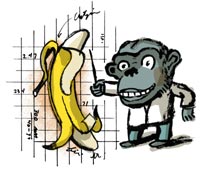 During the recent oil price spike in 2008, one of my mates suggested that our generation will be the last to enjoy relative ease in air travel. A large number of people, even those with decidedly middle class incomes, have the means to travel extensively and find their way to every nook and cranny the world has to offer. A sustained oil crunch, absent a viable fuel substitute, could indeed cripple the airline industry and leave globetrotting to the relatively affluent.
During the recent oil price spike in 2008, one of my mates suggested that our generation will be the last to enjoy relative ease in air travel. A large number of people, even those with decidedly middle class incomes, have the means to travel extensively and find their way to every nook and cranny the world has to offer. A sustained oil crunch, absent a viable fuel substitute, could indeed cripple the airline industry and leave globetrotting to the relatively affluent.
Taking it a step further, Brian Ladd extends the thought experiment to automotive travel. I’m not sure I endorse his argument, but I certainly like the thought experiment. One passage pertaining to industrial production caught my eye:
Economists who blithely assume that pre-2008 automobile sales are “normal,” because Americans “need” their cars, misunderstand the nature of the automobile market. Enormous cars, long commutes, and vast parking lots do have their advantages, but we could manage to live without them.
I am inclined to think that economists would be the last group to assume such a thing based on “need.” In fact, I would think that we would be in the opposite camp, arguing that price signals will lead to adjustments both on the demand side (fewer miles, more fuel-efficient vehicles, shorter commutes, maybe even public transportation) and the supply side (improved fuel efficiency, alternate fuel source).
For an excellent discussion, I recommend the classic James Hamilton blog post on “How to Talk to an Economist about Peak Oil.” I’ll go through that in a future post.

 This question came up in class the other day — are you peeling your bananas wrong? As usual, the Armchair Economist Steven Landsburg has
This question came up in class the other day — are you peeling your bananas wrong? As usual, the Armchair Economist Steven Landsburg has